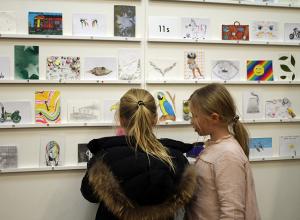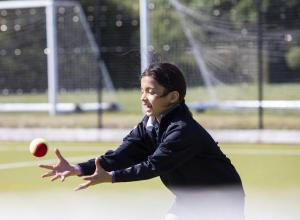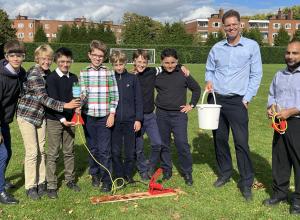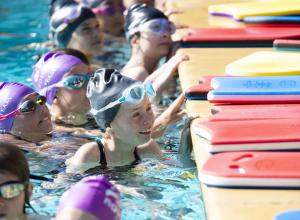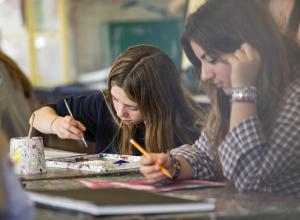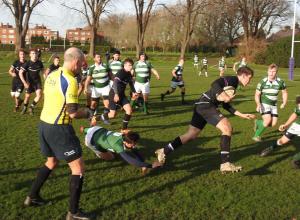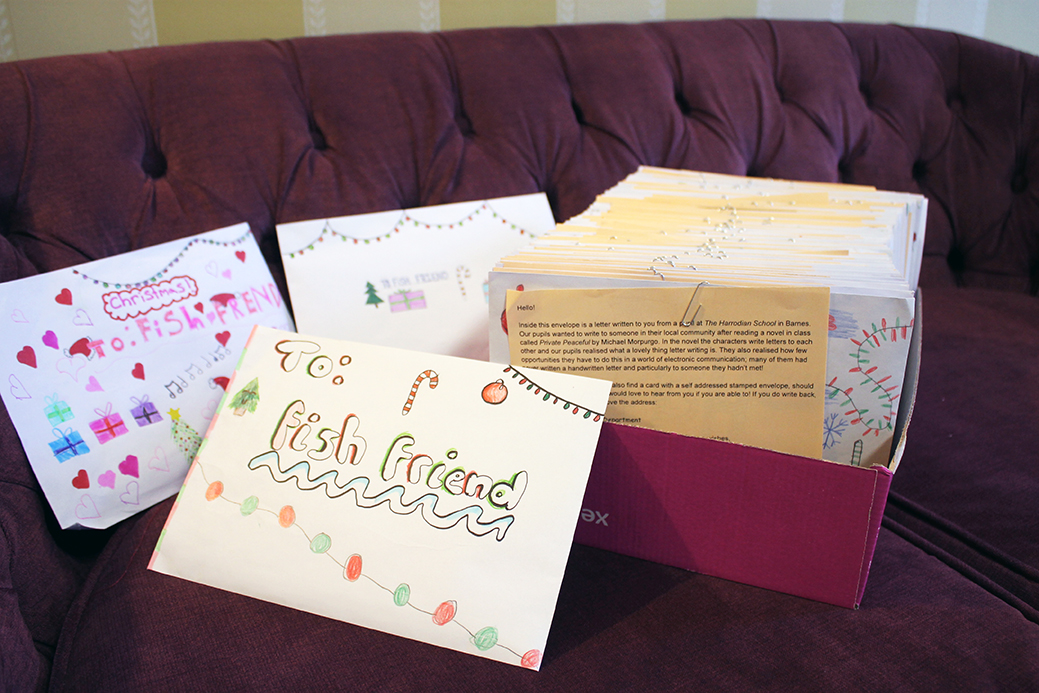
English teacher Ms Makris revitalised her 11s pupils letter-writing skills through a community-focused pen pal scheme that illustrates just why sending and receiving letters can be so special.
One big downside of email and mobile phones is the impact it has had on traditional letter writing. When English teacher Ms Makris discovered how few of her 11s pupils had ever written one, she resolved to find ways of teaching the group what makes sending and and receiving letters so special and to provide them with skills to write their own. 'I felt it was important the children grasped the benefits of letters before we asked them to write one,' she says. 'That's why we looked at the letters exchanged by the characters in Private Peaceful - the book they have been studying in English this year.' The questions posed on the slide below provided the starting point for a discussion about the origins, purpose and value of the letter and their history as a communication tool, an historic record and as a literary form in its own right.
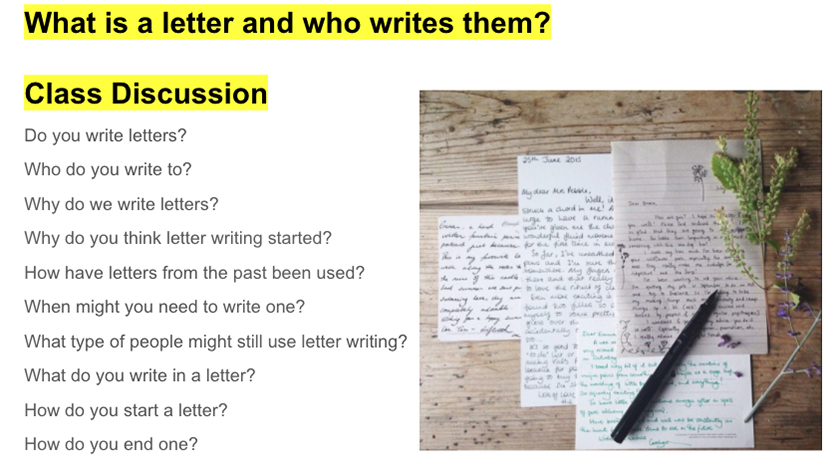
Finding a way of making the letter-writing process real sparked a brainwave that turned the project into an exciting community pen pal initiative
Ms Makris was conscious that the best way of illustrating the power of letter writing was to make the process real and finding a solution to this sparked a brainwave that turned the project into an exciting community pen pal initiative. Before they put pen to paper each 11s pupil was given the following brief: to write a Christmas letter to one of the elderly and vulnerable people in the local Barnes community cared for by the charity FiSH. Each pupil letter enclosed a stamped, addressed return envelope and card to make it easy for the recipients to reply.
According to Ms Makris, pupils were excited and engaged by the idea. 'The children didn't know exactly who they were writing to as letters were addressed to 'a friend', so one of the things we asked them to think about was how hard the pandemic must have been for elderly and isolated members of the FiSH community. This really appealed to their sense of empathy. We knew that thanks to Covid, we weren't going to be able to meet FiSH residents face to face, so we reached out by writing letters instead. When the children saw all the replies coming back, they could see the impact they had made."
One of the things we asked the children to think about was how hard it must have been in the pandemic for some of the more elderly and isolated members of the FISH community and this really appealed to their strong sense of empathy.
Ms Makris, Teacher of English
The letters, decorated beautifully with Christmas drawings and other decorations, were gathered together. Then at the beginning of December, three pupils were chosen to represent their year group and to take the letters down to FiSH in person, below, where they met Operations Manager Linda, who was full of praise for their efforts. The letters were then delivered as part of a pre-Christmas cream-tea pack to local FiSH members in the Barnes area.
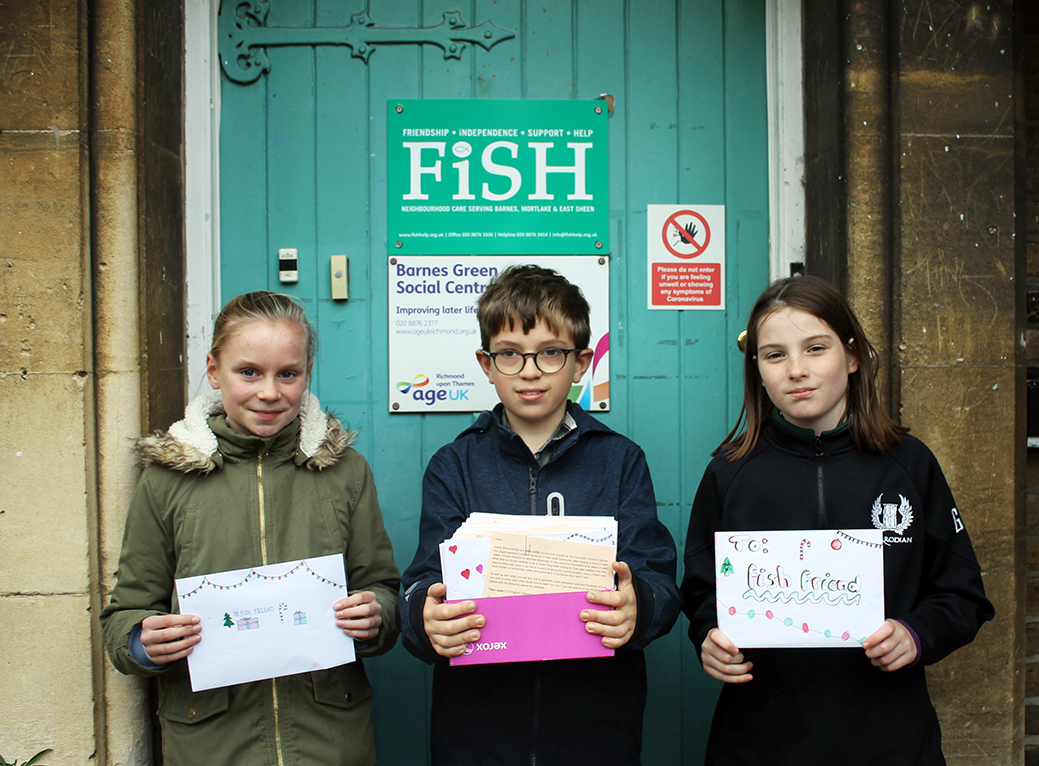
The response was phenomenal with nearly half of the year group receiving a letter or card back. The replies were read, shared and discussed with the whole class so that everyone could benefit from the correspondence. Some envelopes revealed pages of shaky handwriting while others had been typed or written by a scribe - normally a younger relative.
A 93-year old gentleman called Edward replied to Jude in 11MFR and started his letter by explaining that his hands were too arthritic to write so he had asked his wife to write the letter on his behalf. He wrote about his most memorable Christmas - his first white Christmas with snow in London in 1938 when he was ten years old - and shared other stories from his childhood and student days. When asked why he thinks his pen pal wrote back, Jude says, 'I asked lots of questions in my letter and Edward was able to share his memories and celebrate his past by replying to them.'
I asked lots of questions in my letter and Edward was able to share his memories and celebrate his past by replying to them.
Jude (11MFR)
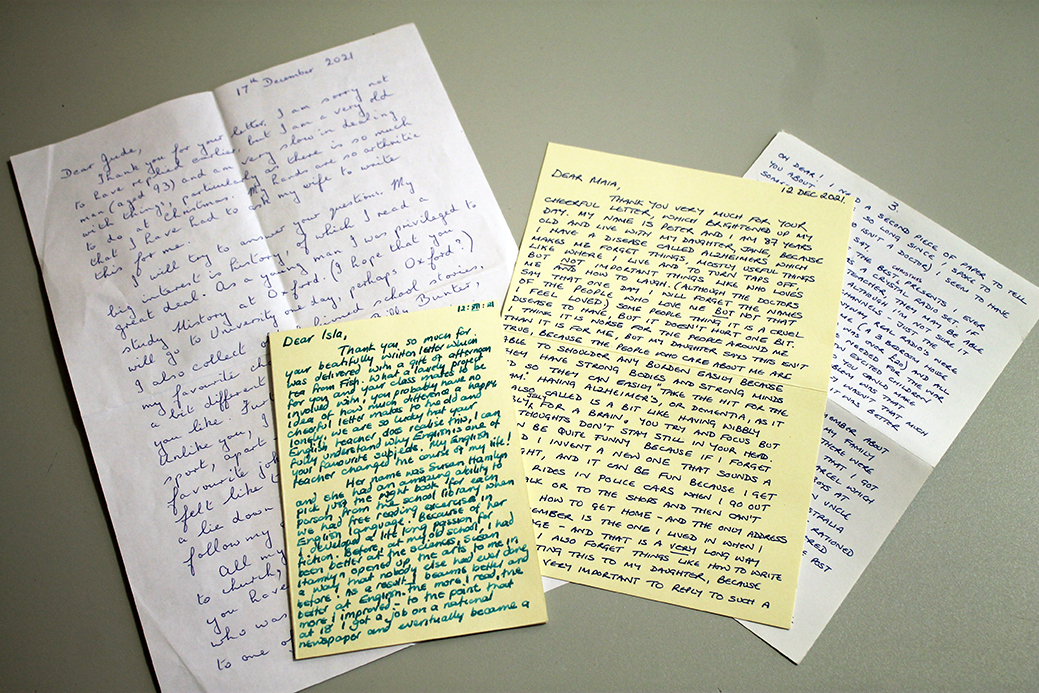
Meanwhile Maia from 11JGR received a very moving reply from Peter, an 87-year-old who suffers from Alzheimer's disease, below. Unable to write his own letter, he dictated what he wanted to say and his daughter wrote it for him. In it, he describes how he feels about having a disease where his mind is gradually deteriorating and explains some of the funny situations he has found himself in as a consequence of not remembering where he lives. He also shares some fascinating insights into growing up during the Second World War, including the fact that a three bedroom house cost £300 to buy in 1936 and a radio cost over £20. Maia is also struck by the fact that Peter has been carrying her letter around proudly in the breast pocket of his jacket for days after receiving it.

When asked how it made her feel, Maia says," It made me feel really pleased to know that Peter, above, liked my letter so much that he carried it around in his jacket. Such a small thing meant a lot and made him so happy."
It made me feel really pleased to know that Peter, above, liked my letter so much that he carried it around in his jacket. Such a small thing meant a lot and made him so happy.
Maia (11JGR)
Isla (11MFR) was thrilled to receive a letter from Jane, who as it turned out was the daughter and carer of Peter. In her letter, she talks about how she became a columnist for the Sunday Times newspaper and the first, full-time, female sports-writer for the Daily Telegraph and is now writing her second book. Jane's love of English combined with a successful writing career made her an obvious choice for judge at this year's public speaking event. So Ms Makris tracked her down with the help of FiSH and invited her to be a guest judge at the 11s finals on 28th January - a role that she willingly accepted. "I am really looking forward to meeting my pen pal Jane, when she judges our public speaking competition. Her career is very impressive but what also inspires me is the dedicated way that she looks after her father every day as a full-time carer," explains Isla.
I am really looking forward to meeting my pen pal Jane, when she judges our public speaking competition. Her career is very impressive but what also inspires me is the dedicated way that she looks after her father every day as a full-time carer.
Isla (11MFR)
Many of the children, like Rose (11LCH), are keen to write back to their pen pals. Rose received a letter written by 85-year-old David who asked her, "what do you think the world will be like when you are my age?" - a question that fuelled an interesting reply from her about robots, automation, and the importance of community in light of the pandemic. Others, like Kit (11MFR), now feel more confident about their letter-writing skills and have consequently written letters to their grandparents or other relatives, rather than messaging or using FaceTime.
Ms Makris and her fellow English teachers have seen such positives come from this intergenerational pen pal initiative, that she hopes to run the project again with next year's 11s. "I was amazed to see the effect of this project on our 11s children. When they wrote their letters, they felt free to reveal things about themselves that they might not normally share and some of the letters they received back moved them in a way that a text message or email couldn't. These letters created a real connection between our pupils and their FiSH pen pals and the benefits were clearly mutual," she concludes.
These letters created a real connection between our pupils and their FiSH pen pals and the benefits were clearly mutual.
Ms Makris, Teacher of English

